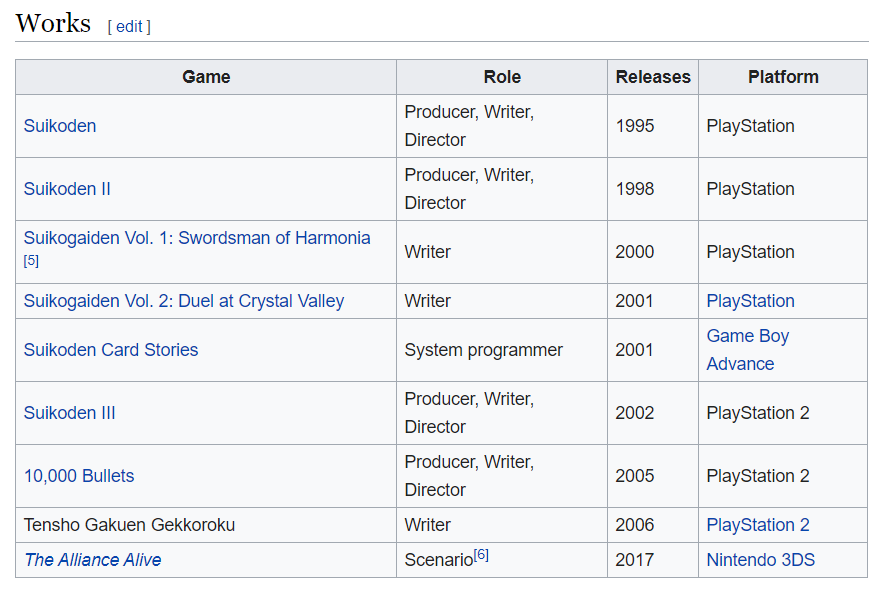This piece is interesting to return to after playing both games. Alliance Alive very obv shares a similar voice and even structure, it& #39;s interesting thinking about why I connected so much with that game and not its predecessors. https://kotaku.com/the-art-of-writing-jrpgs-1838242270">https://kotaku.com/the-art-o...
All three structures are basically "strong propulsive first act -> endless episodic dicking around -> limp climax"
But Alliance Alive stretches that first part into like twelve hours and it rules, and then the episodic parts are at least functional.
But Alliance Alive stretches that first part into like twelve hours and it rules, and then the episodic parts are at least functional.
The dude& #39;s wiki page makes a lot of sense to me... he was a CS major natch, and Suiko 2 was the first big story project he ever worked on, at least professionally. https://en.wikipedia.org/wiki/Yoshitaka_Murayama">https://en.wikipedia.org/wiki/Yosh...
Suikoden II was the first script he worked on and when he couldn& #39;t make it he was like "well let& #39;s make this new thing a prequel, that way we can go back to that great thing I already made later". Instead of just chalking it up as a learning experience and starting fresh.
I wonder how many 90& #39;s rpgs were like that... super-inexperienced writers diving head-first into storytelling for the first time with a twenty person team on a game that& #39;ll ultimately cost like $80 and 40 hours of your life
It& #39;s a high-stakes environment to learn how to tell stories... I think Square and Enix and Falcom and Atlus& #39;s teams had it much better & #39;cause they got started making much smaller games in the 80& #39;s, and only grew into Suikoden 2-sized epics after like 10 years of making games.
I wouldn& #39;t be surprised if Suikoden III is much better than the preceding games, the dude wrote two full VNs in the interim. So many of 1 and 2& #39;s problems are just the same things you see in any nanowrimo or serial web-fic by a first-time author.

 Read on Twitter
Read on Twitter



